Female scientists from all over the world getting together for an online conference
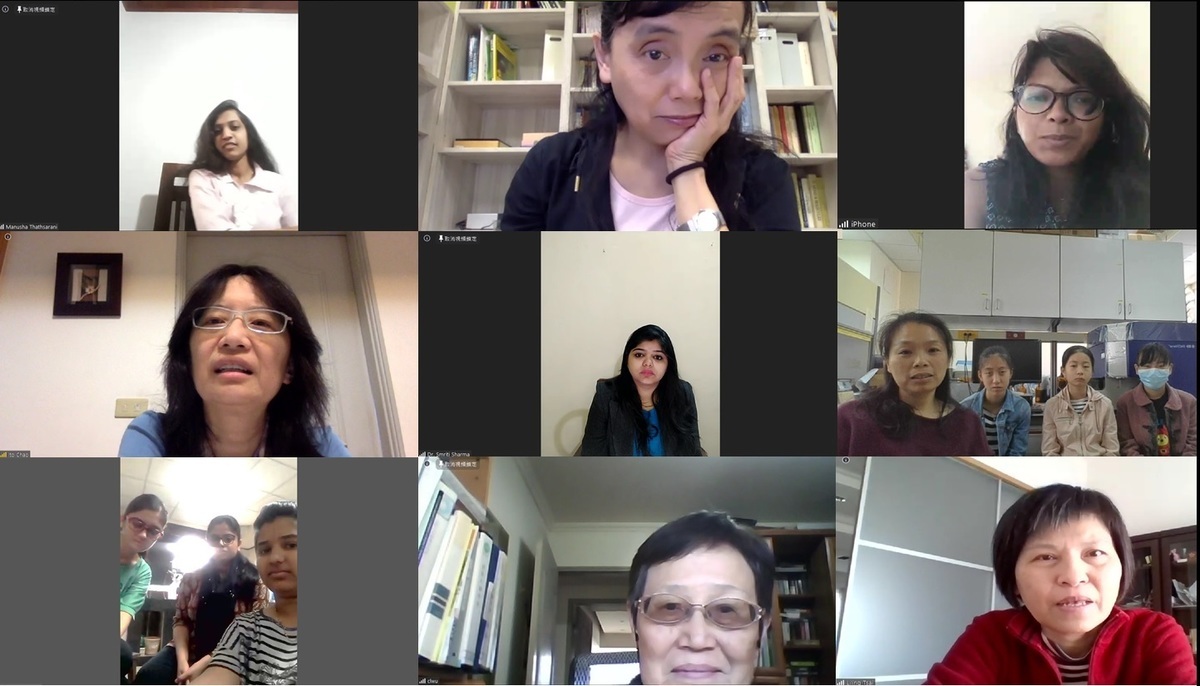
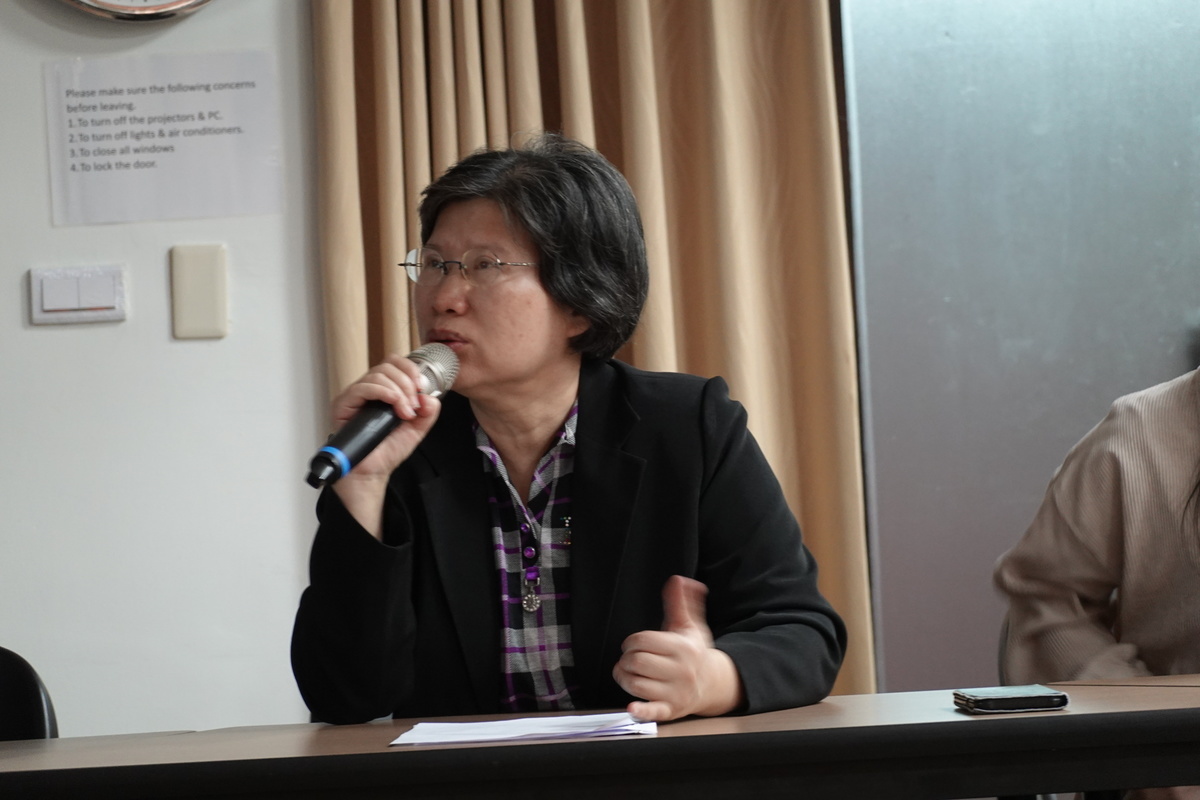
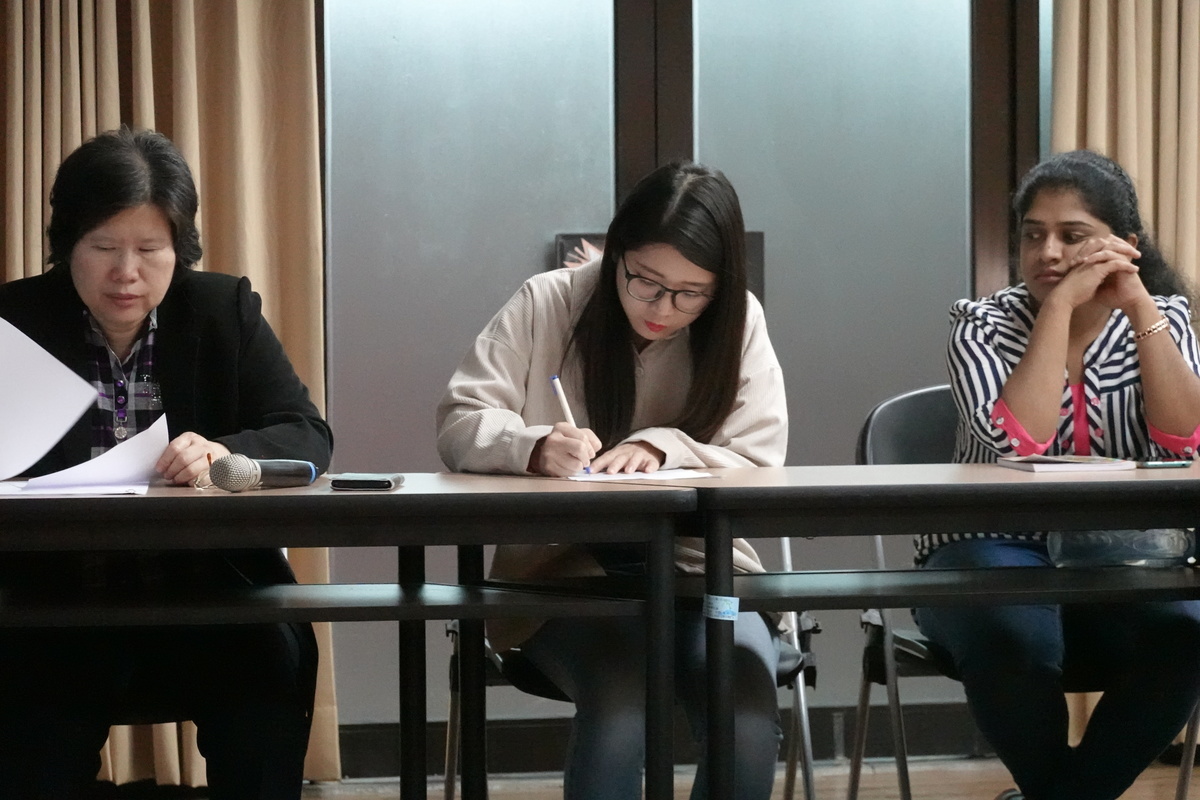
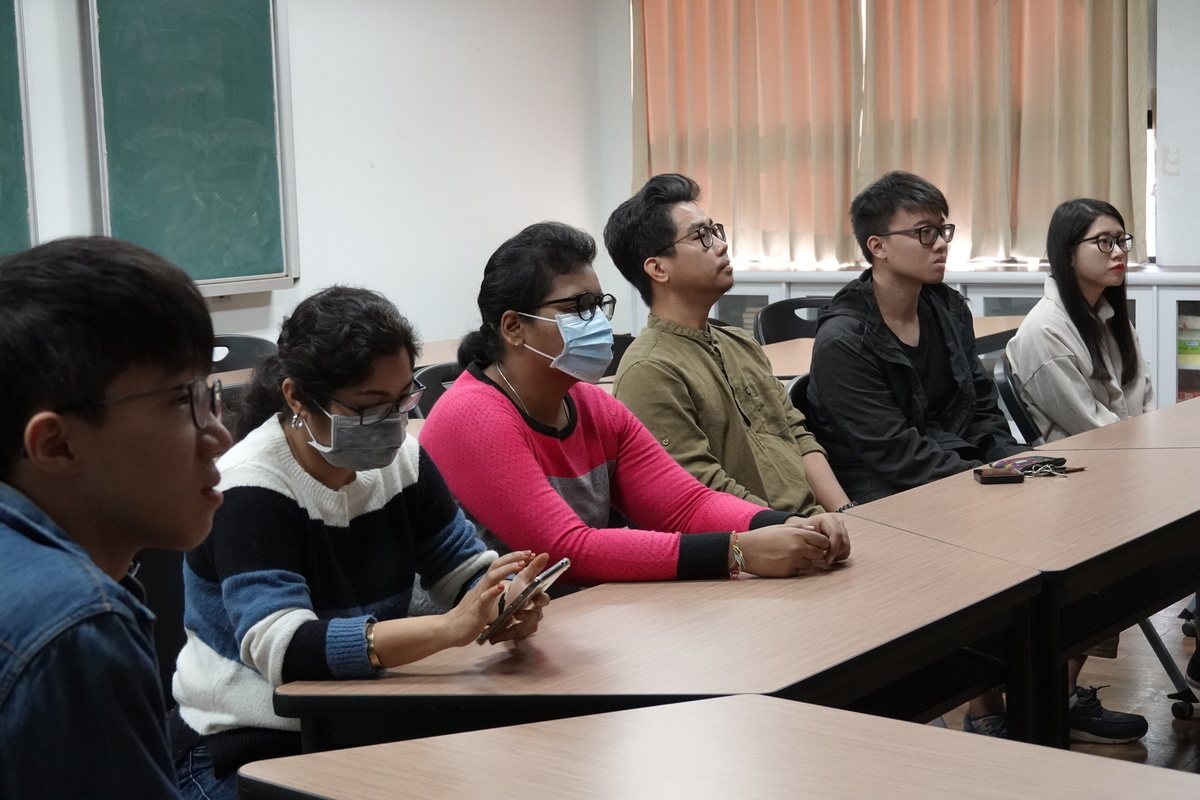
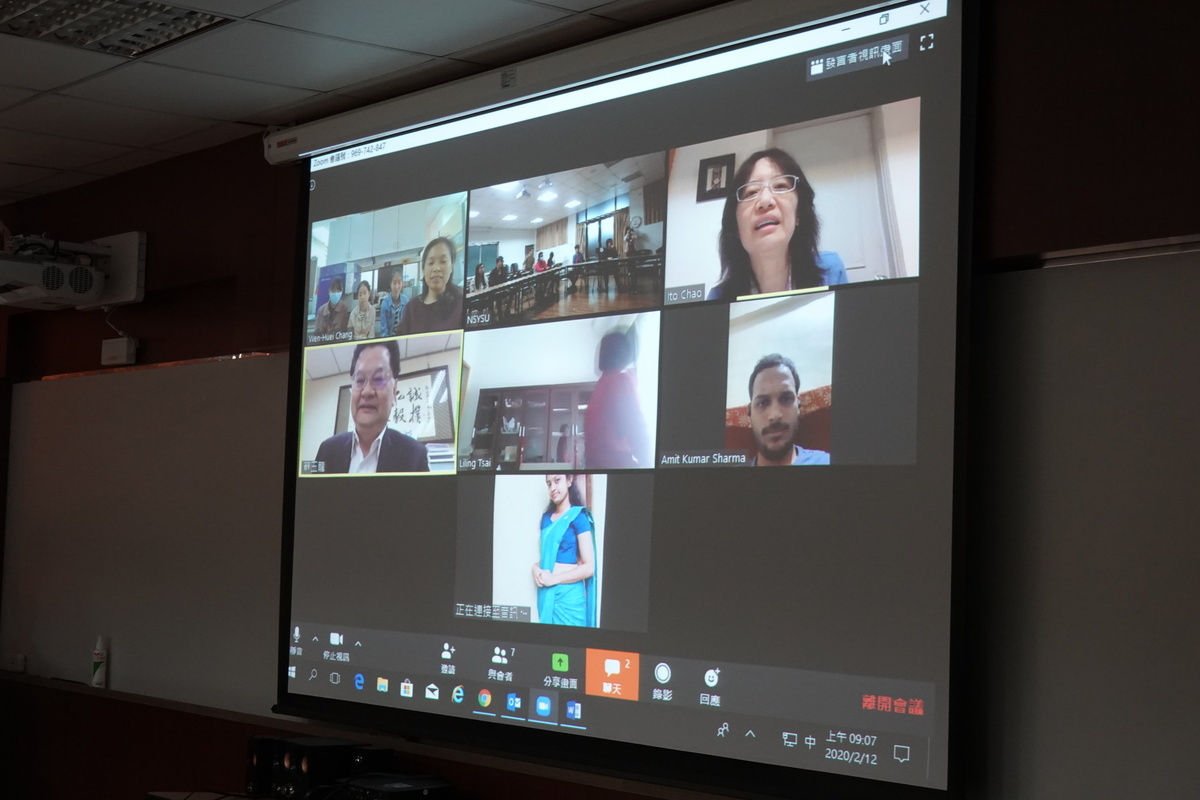
(Report by student journalist) NSYSU Department of Chemistry, the International Union of Pure and Applied Chemistry (IUPAC) and Female Chemists in Taiwan of the Chemical Society organized the IUPAC Global Women’s Breakfast together. Thanks to the modern Internet connection, female scientists from as far as Sri Lanka and India could overcome the time and distance barrier and get together with their peers from Taiwan for an online conference. The convener, Professor Hui-Fen Wu of the Department of Chemistry, said that this edition’s theme “Building Bonds to Create Future Leaders“ celebrates the International Day of Women and Girls in Science (February 11th). The aim is to get female scientists from all over the world to talk about problems they have experienced in their careers due to gender discrimination and discuss possible solutions.
Sri Lankan student of the Master program at the Department of Chemistry Thakshila Nadeeshani Dharmappriya said that the number of women with Bachelor-level education in Sri Lanka is quite high, while gender imbalance starts to appear among students of Master-level programs; the society is not very friendly towards women with postgraduate education. Besides that, family is another source of stress. Dharmapriya said, that she had to argue with her family to go and study for a PhD. Her parents want her to get married as soon as she graduates from her Master-degree program and discontinue her academic career. Her family members reckon that it will be hard for her to find a husband after she turns 30. Marriage is also the beginning of another series of challenges. Her Germany-based older sister, because of pressure put on her to produce an offspring, went to seek medical consultations and have injections, which made her health deteriorate; she even discovered she has a tumor under her armpit.
This is not an individual case. Karishma Dutt, a PhD student from India at the Department of Mechanical and Electrical Engineering said that the starting points for men and women are not the same in India. In the university, a female student woman has to catch every opportunity to make herself noticed, make presentations and answer to every question with the best efforts, and only then she can obtain equal respect as her male classmates. When choosing a supervisor, girls have to stay vigilant against possible sexual harassment from male professors, and this limits their available options. Karishma Duff said, that women and men do not enjoy equal opportunities, not only in science and engineering but also in society. Nandini Swaminathan, another PhD student from India of the Department of Chemistry said, that people are often surprised to hear that she chose chemistry as her professional field and they reply asking why she chose this field and saying that “chemistry is not a girly thing”.
Even long-graduated and professionally-acclaimed female professors with outstanding achievements still face many challenges in their academic careers. When Associate Professor at the Department of Applied Chemistry, National Pingtung University, Wen-Huei Chang was the Department Chairwoman with a child in kindergarten, it was very difficult for her to keep the balance between family and work. Researcher at the Institute of Chemistry, Academia Sinica, Chao-Ping Hsu said, that when she was six-months pregnant with her second child, it was not easy for her to drive the car, and at the same time, take care of her crying three-year-old child; it is not easy to be a mother and worker at the same time in the modern society.
To respond to these difficulties, Associate Professor Li-Ling Tsai, Director of the Graduate Institute of Gender Education of National Kaohsiung Normal University said that it is important that women establish online social groups, get together to share resources and discuss solutions to problems encountered. Professor Tsai also mentioned the concept of gendered innovations; girls are brought up differently with boys, thus the fact that there are more women in the world of science is beneficial to the innovative development of the world.
(Edited by Public Affairs Division)
Sri Lankan student of the Master program at the Department of Chemistry Thakshila Nadeeshani Dharmappriya said that the number of women with Bachelor-level education in Sri Lanka is quite high, while gender imbalance starts to appear among students of Master-level programs; the society is not very friendly towards women with postgraduate education. Besides that, family is another source of stress. Dharmapriya said, that she had to argue with her family to go and study for a PhD. Her parents want her to get married as soon as she graduates from her Master-degree program and discontinue her academic career. Her family members reckon that it will be hard for her to find a husband after she turns 30. Marriage is also the beginning of another series of challenges. Her Germany-based older sister, because of pressure put on her to produce an offspring, went to seek medical consultations and have injections, which made her health deteriorate; she even discovered she has a tumor under her armpit.
This is not an individual case. Karishma Dutt, a PhD student from India at the Department of Mechanical and Electrical Engineering said that the starting points for men and women are not the same in India. In the university, a female student woman has to catch every opportunity to make herself noticed, make presentations and answer to every question with the best efforts, and only then she can obtain equal respect as her male classmates. When choosing a supervisor, girls have to stay vigilant against possible sexual harassment from male professors, and this limits their available options. Karishma Duff said, that women and men do not enjoy equal opportunities, not only in science and engineering but also in society. Nandini Swaminathan, another PhD student from India of the Department of Chemistry said, that people are often surprised to hear that she chose chemistry as her professional field and they reply asking why she chose this field and saying that “chemistry is not a girly thing”.
Even long-graduated and professionally-acclaimed female professors with outstanding achievements still face many challenges in their academic careers. When Associate Professor at the Department of Applied Chemistry, National Pingtung University, Wen-Huei Chang was the Department Chairwoman with a child in kindergarten, it was very difficult for her to keep the balance between family and work. Researcher at the Institute of Chemistry, Academia Sinica, Chao-Ping Hsu said, that when she was six-months pregnant with her second child, it was not easy for her to drive the car, and at the same time, take care of her crying three-year-old child; it is not easy to be a mother and worker at the same time in the modern society.
To respond to these difficulties, Associate Professor Li-Ling Tsai, Director of the Graduate Institute of Gender Education of National Kaohsiung Normal University said that it is important that women establish online social groups, get together to share resources and discuss solutions to problems encountered. Professor Tsai also mentioned the concept of gendered innovations; girls are brought up differently with boys, thus the fact that there are more women in the world of science is beneficial to the innovative development of the world.
(Edited by Public Affairs Division)
Click Num:
Share
